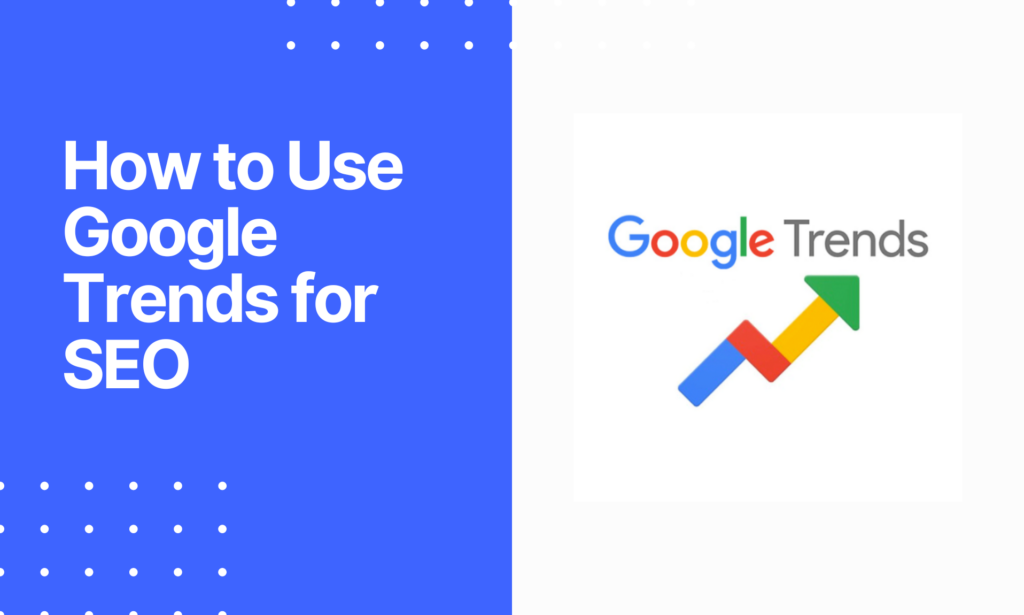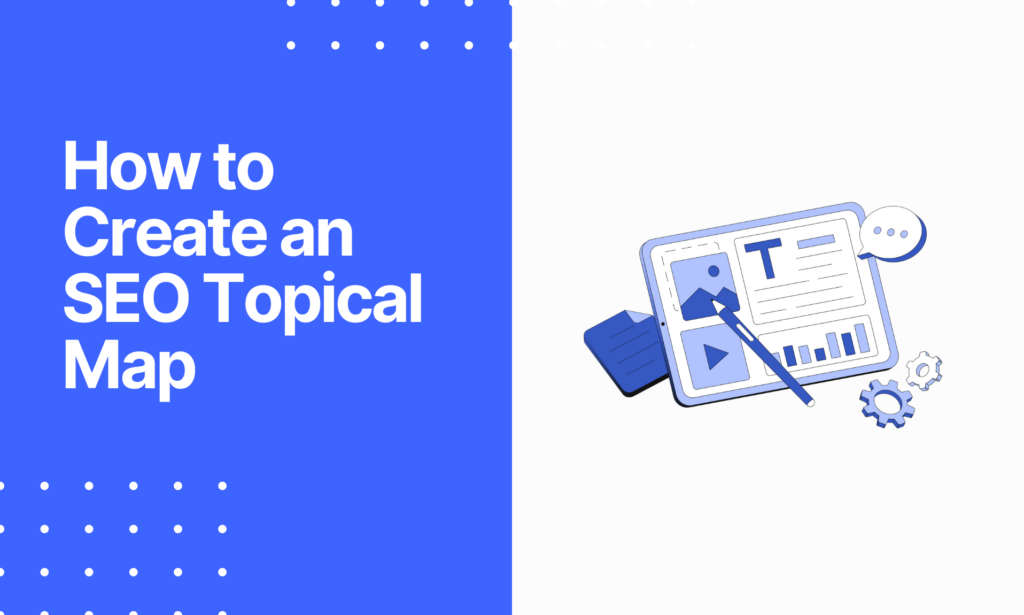In SEO, the terms “on-page,” “off-page,” and “technical SEO” stand out as pillars that can either elevate or hinder your online success. Each plays a distinct yet interconnected role, shaping the direction of your digital business.
For this reason, understanding and effectively implementing these interconnected strategies are crucial steps toward ranking higher and improving your website’s user experience.
Today, we’ll delve into the nuances between technical vs. on-page vs. off-page SEO, unraveling the key differences and optimal optimization practices.
Let’s start!
What Is On-Page SEO?
On-page SEO (or on-site SEO) is the foundation for boosting your website’s domain authority and securing a prime spot on search engine result pages (SERPs).
However, unlike its search engine optimization counterparts, on-page SEO directs its efforts internally, within the confines of your website.
So, what falls under this digital interior design?
It comprises everything you do within your website, including crafting content, incorporating images and videos, constructing meta titles, and deploying relevant keywords.
You can think of it as the meticulous curation of your digital storefront.
Join 900+ to receive a weekly SEO video from my YouTube channel, which I’ll share, and an actionable SEO tip every week.
Importance of On-Page SEO

On-page SEO serves as the digital compass guiding search engines toward the relevance and utility of your content.
Here’s how it does that:
Google’s algorithm, prioritizing user experience, highlights the significance of “people-first content.” It sees valuable content that resonates with user intent to be paramount.
So, when users initiate a search, search engines analyze on-page elements, particularly keywords, to determine if a page aligns with their intent.
Deploying on-page strategies, such as creating relevant content, strategic niche keyword usage, using high-quality images, and writing helpful meta descriptions, will help Google understand and rank your website better.
5 On-Page SEO Optimization Strategies
So, how can you improve your on-page SEO game? Here are five on-page optimization strategies you should consider:
1. Quality Content
On-page SEO begins with captivating content. From homepage copy to blog articles and meta descriptions, optimization involves enriching content with information, links, and media.
Unique, well-written, and formatted content enhances user experience and attracts traffic, fostering click-through rates between pages.
2. Linking Strategy

A robust linking structure with external and internal links is integral for on-page SEO.
These links aid search engines in understanding your site’s structure, facilitate Google crawlers’ discovery of new pages, and enhance user navigation.
External and internal links signal the relationship between pages to Google, influencing rankings and aligning with user search intent.
3. Useful Images
Aside from external and internal linking, visual appeal is another crucial element for user engagement. Websites with high-quality images enjoy enhanced user experience and SEO effectiveness.
Proper image optimization, including suitable file formats and compression techniques, contributes to your site’s health and speed, ensuring a seamless browsing experience.
4. Meta Descriptions
Meta descriptions, or the brief texts beneath titles on SERP pages, play a pivotal role in on-page SEO. Optimizing them involves simplicity, uniqueness, and relevance within the 160-character limit.
Well-crafted meta descriptions attract users from search results and contribute to the overall content optimization.
5. Keyword Usage
Strategic keyword placement is vital for your on-page SEO. It involves integrating target keywords in notable areas such as H1, first paragraph, and subheaders (H2s, H3s, etc.).
Search engines scan your page to see what your content is about. Your readers will likely do as well to know whether your content matches their search queries.
What Is Off-Page SEO?
Off-page SEO is kind of the backstage manager of website optimization. While on-page SEO fine-tunes elements within your website, off-page SEO tackles what’s outside your website.
That said, on-page and off-page SEO share the same fundamental purpose: strengthening your website’s SEO. However, their methods to achieve it may differ.
Off-page SEO casts a wide net of strategies, focusing on elements outside your website. It encompasses activities like social media mentions and gathering backlinks from external domains.
Importance of Off-Page SEO

Off-page SEO is vital to your website authority. Even with impeccable on-page optimization, your site may struggle against higher-authority competitors without robust off-page efforts.
External elements, such as inbound links, signal to search engines that your content holds value, boosting your ranking in search engine results pages and amplifying click-through rates.
However, off-page SEO extends beyond link building.
Methods like content marketing, guest blogging, brand building, and social media marketing all contribute to connecting with your target audience.
So, when done right, off-page SEO becomes a powerhouse tactic, ushering in organic and search engine traffic to your site.
5 Off-Page SEO Optimization Strategies
Are you thinking of bolstering your off-page SEO techniques? Get your notes and take a look at these five off-page optimization strategies.
1. Link Building
Link building is one of the backbones of off-page SEO that involves acquiring backlinks from other websites. These backlinks or inbound links, especially from high-authority sites, enhance your website’s perceived authority in the eyes of search engines like Google.
The key factors here are the authority of the linking site and the number of unique domains directing traffic to your website.
2. Guest Posting
Guest posting, also known as guest blogging, is a strategy that entails creating content for other websites and establishing a symbiotic link between both sites.
Guest posting will significantly contribute to your link-building efforts, extending your reach to new audiences and potentially attracting fresh users and customers.
3. Social Media

While not a direct Google ranking factor, social media plays a pivotal role in off-page SEO. It diversifies your link profile with dofollow and nofollow links, increasing visibility and brand awareness.
Social sharing generates more attention, contributing to branded searches and mentions, which is the whole point of optimizing your website.
4. Useful Content
Crafting compelling and informative content is one of the most natural methods to attract backlinks. Shareable articles, infographics, or videos resonate with your audience, encouraging them to share and link to your content.
You can also leverage your social media platforms to promote content, amplify its reach, and boost search engine rankings.
5. Local SEO
Local SEO is a potent off-page tactic to outshine competitors in your immediate vicinity. Targeting local visibility, it optimizes your Google My Business profile using schema markups.
This strategy enhances visibility in local searches and maps, offering a robust edge, especially when competing with businesses within your locality.
What Is Technical SEO?
Technical SEO involves enhancing a website’s search engine visibility and performance by addressing its technical intricacies.
So, while on-page and off-page SEO focus on content and external factors, respectively, technical SEO dives into the website’s structural aspects influencing search engine rankings.
In essence, technical SEO revolves around your website’s architecture. It encompasses activities directly impacting how search engines index and crawl your site. It influences your site’s speed, indexing, and overall website structure.
Importance of Technical SEO
Technical SEO is important because it helps determine your website’s performance on Google.
For example, if the search engine cannot access your site’s pages, regardless of content quality, your pages won’t surface in search results.
Technical SEO also safeguards against traffic loss and revenue decline.
Google-endorsed ranking factors influencing user experience, such as page speed and mobile-friendliness, fall under the technical SEO domain.
So, say you have slow-loading pages and a not-so-mobile-friendly site. These hitches can drive users away, signaling a negative user experience and lowering your site’s Google ranking.
5 Technical SEO Optimization Strategies
Now that you know how essential technical SEO is, here are a few strategies you should implement to enhance yours:
1. Website Speed
Website speed stands as a pivotal factor in technical SEO, influencing user experience and bounce rates.
As such, you should optimize loading performance by compressing images, utilizing a content distribution network (CDN), and minifying HTML, CSS, and JavaScript files to enhance page load time.
2. Mobile Responsiveness

Given the mobile-first emphasis by search engines, ensuring your website is fully responsive across devices is imperative.
The “Mobile Usability” report in Google Search Console can highlight and address pages affecting mobile usability. It helps you align your pages with Google’s prioritization of mobile-friendly content.
3. Copied Content
Technical SEO intersects with on-page efforts in stressing unique, non-duplicated, and enriched content. So, avoid plagiarism on your website, as Google penalizes excessive copying.
One great habit is to conduct a technical site audit regularly to identify and address pages with duplicate content, preserving the integrity of your online presence.
4. Site Security
Ensuring the security of your website goes beyond safeguarding user information; it’s one of the cornerstones of technical SEO.
Implementing HTTPS, for instance, fortifies your website against potential threats while holding significance as a ranking factor acknowledged by Google at the same time.
Google has even explicitly stated that HTTPS websites are more likely to secure higher positions in the SERPs.
5. Core Web Vitals
Apart from security, your website’s Core Web Vitals, comprising its speed, interactivity, and visual stability, are crucial SEO ranking factors.
You can use Google Search Console to get insights into your website’s performance on these metrics.
Aim for optimal scores—LCP (2.5 sec or lower), FID (100 ms or lower), and CLS (0.1 or lower)—to improve search engine rankings and deliver an enhanced user experience.
Technical, On-Page, and Off-Page SEO: Why All Three Matters
Technical, on-page, and off-page SEO are all vital for your online success.
On-page SEO communicates your website’s relevance to search engines, while off-page SEO, through external links, endorses your website’s quality. Technical SEO also ensures your website’s visibility on Google by enhancing its performance.
So, a robust SEO strategy isn’t a battle of technical SEO versus on-page SEO versus off-page SEO. Instead, it’s the harmonious integration of all these pillars.
Each one plays a unique yet complementary role in enhancing your website’s visibility and achieving SEO success, so it’s necessary to implement all three.
Frequently Asked Questions
Here are some commonly asked questions about SEO that might help answer some of your questions:
What are the three pillars of SEO?
SEO has three pillars. The first pillar, technical SEO, deals with technical aspects like mobile friendliness and site speed.
The second pillar, on-site SEO, involves creating relevant content and optimizing meta descriptions and title tags. And lastly, off-site SEO focuses on getting external links, social media sharing, and building brand awareness.
What is considered off-page SEO?
Once you have a promising niche in mind, rigorously research the market landscape, competition, trends, and audience. Understand search volumes, gaps in content coverage, audience pains and needs, and existing site strengths and weaknesses.
This data will reveal exactly where you can differentiate. I recommend that you compile the findings into a spreadsheet.
What is considered on-page SEO?
On-page SEO, or on-site SEO, involves optimizing web page content for search engines and users.
Some typical practices include refining title tags, content, internal links, and URLs. It also concerns optimizing elements like headlines, images, meta descriptions, and structured data.
It’s vital for helping search engines understand your website’s relevance to user queries, enhancing overall visibility and user experience.
What is considered technical SEO?
Technical SEO is an integral aspect of optimizing a website for search engines. It focuses on meeting the technical criteria that search engines demand to enhance organic rankings.
Elements such as crawling, indexing, mobile-friendliness, and page speed are crucial in this process, ensuring a website is technically sound and search engine-friendly.
Does every page in your website need SEO?
Yes, every page on your website demands SEO attention. No webpage is exempt from the scope and influence of SEO.
Remember: every one of your pages, regardless of its purpose or content, contributes to your site’s overall visibility.
Finally, considering the potential diversity in keywords, even with 100 pages, each can aim to rank for distinct searches, amplifying your site’s reach and effectiveness.
Wrap-Up
In conclusion, a successful SEO program includes the practical application of technical, on-page, and off-page initiatives. Each plays a unique role, elevating your website’s visibility and success in the digital realm.
Ready to enhance your SEO game? Implement these SEO strategies today and witness improved rankings, user experience, and online success!


